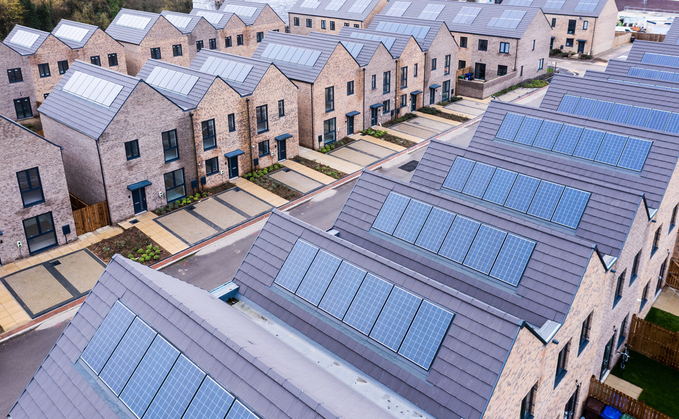
Credit: iStock
Ministers expected to beef-up Future Homes Standard to ensure solar panels are installed on 99 per cent of new build homes from 2027
Almost all new homes built in England would need to be fitted with solar panels as standard from 2027, under rules being drawn up by the government that would slash household energy bills by around £1,000...
To continue reading this article...
Join BusinessGreen
In just a few clicks you can start your free BusinessGreen Lite membership for 12 months, providing you access to:
- Three complimentary articles per month covering the latest real-time news, analysis, and opinion from Europe’s leading source of information on the Green economy and business
- Receive important and breaking news stories via our daily news alert
- Our weekly newsletter with the best of the week’s green business news and analysis








